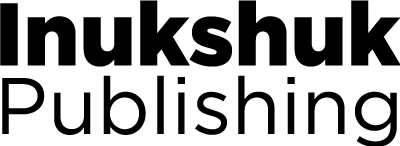Enterprising Nunavummiut

Inspire Nunavut plans to prepare youth for school and work across the territory.
Luke Takohikima Ayaligak’s dream business location is a carving shack, divided into two parts. One side of the building would be dedicated to carving. From the other, he would help people fix their mobile devices: assist them to set up passwords and accounts, unlock phones, sell screen protectors and other mobile accessories.
The two businesses operating under one roof would be a combination of a life-long passion, and a service he’s recently begun providing.
Ayaligak, 33, has been carving since childhood.
“I like that every piece is different,” he said. “I like that people’s imaginations are different and it shows in their pieces.”
He’s been able to capitalize on that, too.“Tourists really like them,” explained Ayaligak who runs Ayaligak’s Arctic Arts. “They’re always looking for something. I like that it sells.”
Developing ways to increase sales of his wooden and soapstone creations has occupied more of his time lately. Ayaligak isn’t new to business: his family’s been selling their carvings locally in Kugluktuk for years. But in March 2018, he became one of the most recent graduates of Inspire Nunavut, a job training and entrepreneurship program that’s been running since 2016.
Ayaligak’s grandmother, now deceased, taught his mother to carve and make dolls. Ayaligak and his brothers, Gary and Robert, also learned the craft from their grandmother. Their carvings have been sold outside of Nunavut as well, but business has increased since graduating from Inspire Nunavut. There, Ayaligak learned about marketing, building a successful business plan and the opportunities of e-commerce.
“It was like an accelerator. It really improved my business side of things,” he said.
Ayaligak began the program in October 2017, five months after moving back to Kugluktuk. He’d been away working for a year, and his plans when he returned were to continue carving and helping people with their mobile devices.
Inspire Nunavut helped him develop a business brand, and taught him he can sell his artwork, and other artist’s work, for a lot more online. “People online are more likely and more willing to pay more,” he said. When artists sell locally, they often have to settle for prices that are lower than what they originally asked.
His mobile services business is more recent, although he’s been helping people with their phones for years. “I’ve pivoted to providing service instead and having those products in-stock for selling,” he explained.
“The other is more cultural, and has more value,” he said of the carvings. His subjects are what he calls the traditional Inuit way of life: igloos, polar bears, and his personal favourite, seal hunters in kayaks.
“In the same sense today, mobile phone has value, too. They’re very valuable,” he said. “I think it’s a need … whereas the other one it’s more like culturally, a want. Electronics today is more like a need.”
Ayaligak’s vision – to combine both traditional and more modern activities to make a thriving business – reflects how Inspire Nunavut wants to grow.
The program aims to be a “bridge to both worlds: the economy world and the cultural world,” explained Sandy Kownak, the organization’s new Managing Director. Kownak, who lives in Iqaluit, started with the organization in fall 2018, after a career in policy across Nunavut.
Inspire Nunavut first ran from February to September 2016 in Iqaluit and Pond Inlet. From January to June 2017, Baker Lake, Arviat and Igloolik hosted. The last session started in October 2017 and ended in March 2018 and was held in Cambridge Bay and Kugluktuk. Details about the fourth session were still being finalized in October 2018.
Critical Learning
The program teaches students about how to design and operate a business. Ajmal Sataar, Inspire Nunavut’s President, described it as a “pre-employment training program.” The goal, said Sataar, who lives in Ottawa, is to teach youth skills they can use regardless of where they work or study after completion. Many of the 75 participants in the program’s history are still operating businesses, even though some of those may still be small. According to Sataar, 56 per cent of participants have become entrepreneurs and another 30 have returned to school or been hired by other companies.
Increased mining and research in Nunavut makes this a crucial time for the program to expand said Kownak, who says it’s very possible for there to be two Inspire Nunavut programs operating in each of the territory’s three regions. “We’re pretty young,” Kownak said of the territory. “When Nunavut first started, I was a young person. Nothing was really set up to help a young person.”
More focus needs to be put on helping the territory’s youth, said Kownak. Inspire Nunavut’s participants range in age from 16 to 35. The territorial government funds the program.
“They’re the resource right now that really needs some support to develop personal capacity to make Nunavut a success.” Nunavut presents logistical and geographic challenges that Inspire Nunavut can’t conquer. Inspire Nunavut is like a small business, too – it operates from Impact Hub, a co-working space in Ottawa. The small team doesn’t have time to keep in contact with graduates as much as they would like.
The need for space and greater connections are experiences participants relate to.
Cheryl Kinak, who graduated from the program in June 2017, loves operating Do or Dye Mobile Salon in Arviat. But the 26-year-old mother of three is eager to drop the word “mobile” from the title. Right now, she travels to her customers. But her goal is to have her own building one day.
“There’s no commercial space in the community,” she explained.
That hasn’t stopped her growth. Kinak estimates she has between five and eight clients daily during the spring, although in the winter she may only have eight appointments a week. She’s pleased with the growth.
“I’m constantly cutting hair,” she said.
Kinak was building up her client base before she started Inspire Nunavut. She began cutting hair in 2006, partly at the request of friends. But she said that before she began Inspire Nunavut, she felt “stuck.”
She didn’t know “how to put myself out there to advertise or how to talk to people … I had no knowledge of what to do or where to go.”
Inspire Nunavut taught her how to improve her record keeping and attract customers. Kinak posts pictures of recent haircuts on her company’s Facebook page where she also advertises deals.
But the increased revenue isn’t going to solve the problem of little available space. “It’s probably going to take a while,” she said.
Kinak’s not alone in this challenge. Since June 2017, Jennifer Kublu, 20, has been operating Inuk Stitches from her parents’ home in Igloolik. She sells sewing supplies and fabric. Her inventory can move fast: the 12 fox furs she ordered from Winnipeg arrived in May 2018 and were gone by the end of September. Kublu’s been sewing since she was 13, and enjoys making parkas for her young nieces. Eventually, she’d like to offer sewing lessons too, but doesn’t have space, she said.
Kublu’s desire to bring her passion to others reflects a common Inuit business practice.
“Inuit operate in a common goal, cooperative effort with community successes as a driving point,” explained Kownak. “It’s not a place where you generally operate in a sense of high profits and lining your pockets for yourself. It’s about everybody. It’s so small that your impacts impact others.”
Kinak sees her business improve the lives of people every day: her children. It enables her to purchase what her children want, like bunk beds.
“I grew up wishing for the things that I wanted, and I couldn’t get it because my mom couldn’t afford it,” she said. “That’s how I got into working for my own and not relying on the government.”
Beauty Parlor Potential
Even graduates who have had to put their businesses on hold have expansion plans. Donna Lyall, 24, completed the program in Cambridge Bay. Shortly after, she started selling beauty products, including made-in-Nunavut soaps from Uasau Soaps. Her goal is to open a full-service beauty parlor, Memogana’s Beauty Parlor, named after her grandfather.
“I want to feel like it’s for everyone, not just for women,” she explained.
People have to fly outside of Cambridge Bay to get their hair done, and usually order make-up online. Lyall, who was voted most fashionable in high school, wants to change that. She’s put her business on hold at the moment; a September Facebook post announced her decision. She started a new job, and needs to care for her family. She lives with her parents, but wants to eventually get her own place and then focus on her business. Lyall heard about Inspire Nunavut when she did an advertisement for them for the local radio station. She signed up for the program to improve her resume. Although her beauty parlor isn’t open now, she’s actively working on her business plan. It includes expanding across the territory and training others.
“I want more Inuit to be able to cut hair and have their licence to cut hair,” she said. “I want to have that growing my business, too. It’s already in my business plan.”

